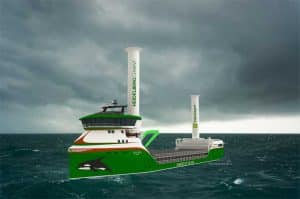Although the Nordic countries are characterized by widely different sectoral setups and geographies, they do share many traits such as being welfare democracies with flexible labor markets and long traditions for environmentally friendly policies and highly adaptable energy sectors.
Being comparatively small open and exposed economies with limited domestic markets the Nordic countries rely heavily on exports. This is one of the main reasons that these countries have developed energy-efficient and flexible industries as well as adaptable energy sectors to minimize exposure to fluctuating energy prices. The environmentally friendly policy tradition combined with the need to maintain competitiveness of economic sectors have made the Nordic countries forerunners within renewable energy.
Bioenergy is huge in countries such as Sweden and Finland, as has been the case for decades, with their ample access to vast forest resources. Denmark has a long tradition for using bioenergy derived from agricultural waste products and the country is well known for its leading position within wind power. Norway and Iceland produce a major part of their electricity from hydropower and have done so for decades. In Iceland geothermal power plays a significant role as well and has potential for further exploitation.
Since the Nordic countries have such a long tradition of environmental protection and renewable energy, they are perfectly positioned for adding hydrogen in the mix to displace fossil fuel use in industries, transportation, housing and power production. Hydrogen used as energy storage helps balancing fluctuating power production from sources such as wind, sun and hydro.
Yet, it is also well suited to replace fossil fuels in industrial processes such as steelmaking or cement production. Sweden being a large steel nation in the Nordic context has, via its national HYBRIT project, already proved that fossil fuel use in steelmaking can be reduced by 99 percent. Volvo recently announced that the carmaker in partnership with Swedish steelmaker SSAB will start production of cars made from carbon-reduced steel produced by the HYBRIT method within this year.
Swedish Railway Tracks on Hydrogen
The Swedish domestic railway route Inlandsbanan (the Inland track, ed.) has commenced a feasibility study on converting the 1,400 km track to hydrogen operation substituting the current diesel locomotives with hydrogen-powered fuel cell locomotives. As the track is among the few stretches in Sweden still not electrified it will be investigated whether hydrogen operation is competitive in comparison with electrification or conventional diesel locomotives running on biofuels. […]
… Read this article to the end in the latest H2-International
Author: Michael Jensen – Energy Journalist, Copenhagen

























0 Comments